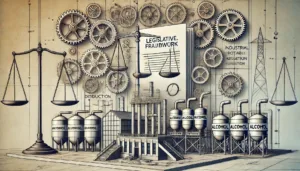Case Citation
Court Name: Supreme Court of India
Case Title: Pawapuri Rice Mills v. Bihar State Food and Civil Supplies Corporation Ltd. & Others
Case No.: Civil Appeal No. 1889 of 2023 (with connected Civil Appeals)
Date of Judgment: December 18, 2024
Judges: Hon’ble Mr. Justice Hrishikesh Roy and Hon’ble Mr. Justice S.V.N. Bhatti
Facts of the Case
The appellants, rice millers in Bihar, entered into agreements with the Bihar State Food and Civil Supplies Corporation for the custom milling of rice (CMR) during the 2011-12 procurement year. The Civil Supplies Corporation acted as the State’s nodal agency for the procurement of paddy, which was to be milled and delivered to the Food Corporation of India (FCI). Disputes arose over the failure to deliver the agreed quantities of CMR, leading the Civil Supplies Corporation to initiate recovery proceedings under the Bihar and Orissa Public Demands Recovery Act, 1914. The rice millers challenged the recovery notices, asserting that the demands did not qualify as public demands under the Act.
Contentions of the Appellant
- The rice millers argued that the recovery proceedings were illegal and beyond the jurisdiction of the Public Demands Recovery Act.
- They contended that the amounts sought were contractual in nature and did not constitute “public demands” as defined under the Act.
- The rice millers maintained that the Civil Supplies Corporation was not a State entity, department, or official and thus could not invoke the Act for recovery.
- They claimed that the alleged breach of agreement should be adjudicated in a civil court, not through summary recovery mechanisms.
Contentions of the Respondent
- The Civil Supplies Corporation argued that it was a nodal agency of the State Government and acted on its behalf for paddy procurement and distribution.
- It contended that the amounts due constituted public demands as per Section 3(6) of the Act and were recoverable under its provisions.
- It claimed procedural compliance in initiating and concluding the recovery proceedings.
Issues
- Whether the recovery by the Civil Supplies Corporation qualifies as a “public demand” under the Act?
- Whether the Civil Supplies Corporation, as the State’s nodal agency, can invoke the Act to recover dues from rice millers?
- Whether the procedural safeguards under the Act and principles of natural justice were followed?
- Whether the rice millers had alternate statutory remedies to challenge the recovery proceedings?
Observations/Findings by the Supreme Court
- The Civil Supplies Corporation, as a nodal agency of the State, was acting on behalf of the State Government to implement the Public Distribution System (PDS).
- The Court held that the amounts recoverable for undelivered CMR constituted public demands under Section 3(6) of the Act.
- The Court emphasized the broader legislative intent of the Act to allow the recovery of such demands in public interest.
- The procedural safeguards under the Act provided adequate remedies for the rice millers to contest recovery notices.
Principles Laid Down by the Court
- The definition of “public demand” includes amounts recoverable by State-recognized nodal agencies acting under government schemes.
- Jurisdictional facts must be established to invoke recovery proceedings under the Act.
- The existence of alternate remedies precludes writ jurisdiction unless exceptional circumstances are demonstrated.
Final Order
The Supreme Court dismissed the civil appeals filed by the rice millers. It held that the recovery proceedings initiated by the Civil Supplies Corporation were valid and justified under the Act. However, the Court allowed the rice millers a grace period of 30 days to avail statutory remedies without reference to limitations.
Importance of the Judgment to Society
This judgment strengthens the framework for the recovery of public demands, especially in cases where government schemes are involved. By affirming the Civil Supplies Corporation’s role as a nodal agency, the Court emphasized the importance of enforcing public interest obligations. The ruling also clarifies the definition of public demand, ensuring the effective functioning of public welfare schemes like the PDS, which are vital for food security in India.








